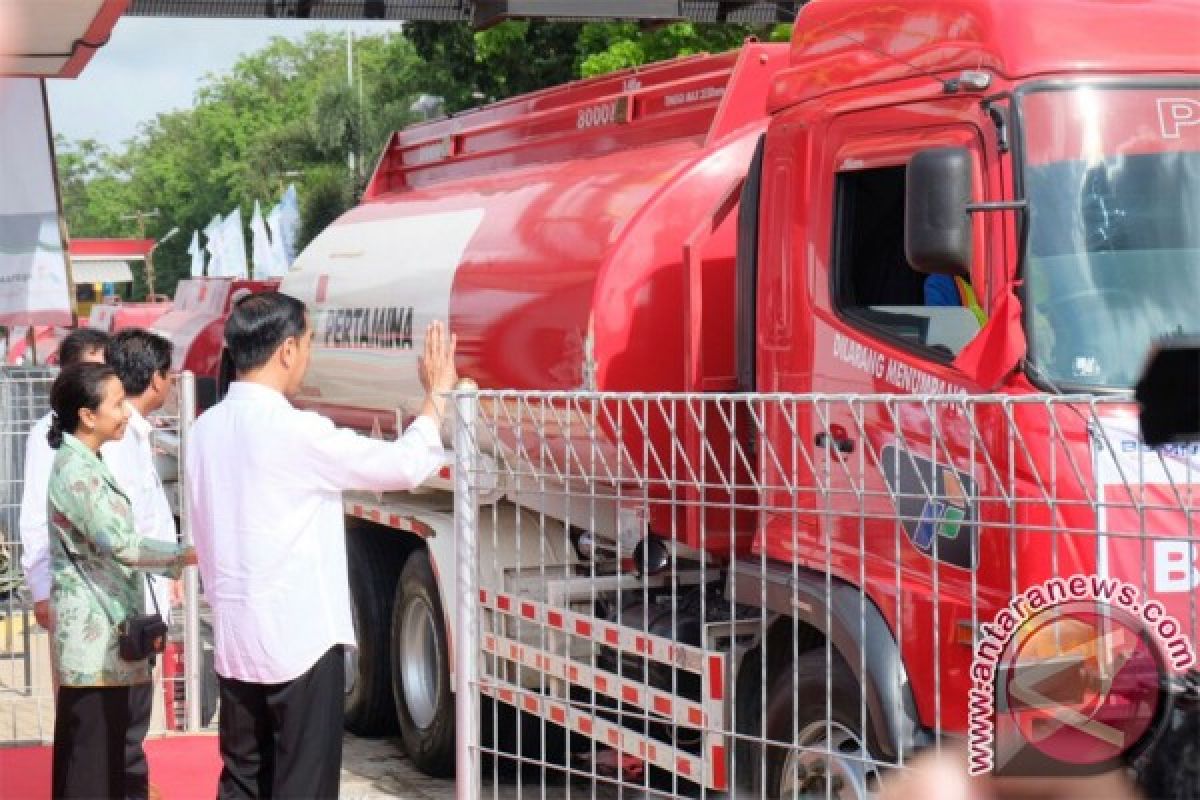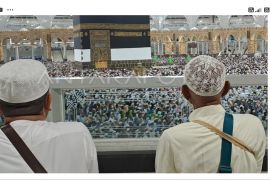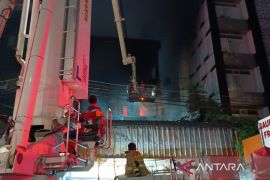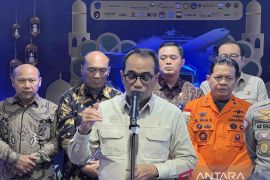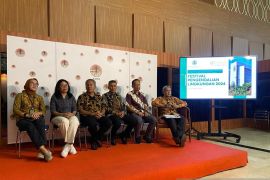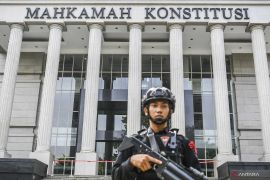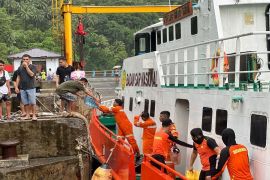"However difficult it is, we have to go on with the program," the president stated.Jakarta (ANTARA News) - The Joko Widodo (Jokowi) administration is determined to continue the implementation of the single-price fuel program for remote and outermost regions despite difficulties posed by rough terrains and long distance.
The hardship is worth it for the sake of just and equitable economic development across Indonesia, including in the remote and outermost regions.
The single-price fuel policy demonstrates strong political will of the government, which believes that development is not only for Java Island or to cities but also to every region in the country, such as in the hinterland areas located in Indonesia`s easternmost province of Papua.
Jokowi recently described the difficulty in transporting and distributing oil fuel all across the vast archipelago, through the seas and mountainous areas.
"However difficult it is, we have to go on with the program," the president stated, while addressing a ceremony officially inaugurating 17 units of oil fuels (BBM) terminal in Pontianak, West Kalimantan, on Dec 29, 2017.
As many as 17 terminals for oil fuel distribution, under the program of selling BBM at the same price all over the vast archipelago, were commissioned by the president.
The 17 BBM terminals include 16 units of public BBM filling station and a BBM filling station for fishermen, all under the same administered price.
So far, BBM prices have been much higher in eastern Indonesia and other remote areas. In Java, the price of subsidized gasoline is around Rp6,550 per liter, but in interior mountainous areas of Papua and Kalimantan, the price could be as high as Rp100 thousand per liter.
"In the past, we have shown little attention to what was going on in far-way regions. But now, we cannot continue to be negligent of their condition, even if they are far from us. They are part of the Unitary State of the Republic of Indonesia," the Head of State noted.
Therefore, the government does not hesitate to set aside Rp800 billion a year to finance distribution of BBM under the program of setting the same price of the strategic commodity all over the country.
"Yes, we have to spend Rp800 billion (for the distribution cost)," Jokowi stated.
The terminals are designed to facilitate the distribution of fuel with administered price in isolated areas of the province, Jokowi remarked.
He compared the BBM distribution cost to the huge fund set aside by the government previously for BBM subsidy.
"You chose to keep silent when previously the government had spent more than Rp300 trillion a year on BBM subsidy and trigger an uproar over Rp800 billion distribution cost. And I repeat, it is for isolated areas, for outermost regions, for eastern Indonesia," he explained.
Also present at the ceremony were First Lady Iriana Joko Widodo, Energy and Mineral Resources Minister Ignasius Jonan, Minister for State Enterprises (BUMN) Rini Soemarno, Trade Minister Enggartiasto Lukito, and other officials.
"There are several BBM terminals in Kalimantan, in Sulawesi, in Maluku, and in North Maluku, but the largest number is in Papua," the president elaborated.
He then pledged that the number of the BBM terminals would continue to increase from year to year to carry out the program.
"When the program of single price BBM was launched for the first time, many doubted if it would be practical. They did not believe the program could be implemented. It is indeed very difficult and very expensive," said he stated.
Meanwhile, Jonan noted that there have been 57 BBM terminals in 57 sub-district areas so far, including three built by the private sector and the rest by state-owned energy company PT Pertamina.
He added that he would need three years to finish carrying out the program of building 151 more terminals in 151 sub-districts.
He noted that the distribution of BBM with the same price, using aircraft, ships and tanker trucks, would cost around Rp800 billion a year.
So far, PT Pertamina has reached more than 70 percent of its target to expand the single-price scheme for oil fuel all over the country, including in isolated and outlying areas of the country, according to Elia Massa Manik, President Director of Pertamina.
Pertamina, the authority in oil and gas fuel distribution, has commissioned four new fuel filling stations (SPBU) in a number of isolated and frontier areas in Sumatra, Kalimantan, and Nusa Tenggara, selling fuel at the same price as in other regions in the country.
The four new units of SPBU are in the sub-district of Enggano, North Bengkulu, sub-district of Sipora Utara in Mentawai, West Sumatra; in sub-district of Biduk Biduk in North Kalimantan; and sub-district of Atambua in East Nusa Tenggara.
The program began when Jokowi ordered Pertamina to sell oil fuels, including gasoline and kerosene, in the country`s most backward regions of Papua at the same price as in Jakarta.
Previously, the prices of oil fuel as well as other manufactured consumer goods, including cement, were much higher, which was 20 times more than in isolated mountainous districts of Papua.
The program is part of the government vision of reducing economic gap all over the country, notably between the more advanced western and backward eastern parts of the country.
Pertamina noted that it had used the same administered price at 38 SPBUs out of its target of 54 SPBUs with the four new units of SPBU.
Manik remarked that Pertamina was consistent in supporting the president`s Nawacita (nine-point development) program in national energy resilience, through the operation of SPBU with the same prices all over the country, including in isolated areas.
Manik added that the presence of SPBUs in isolated and frontier areas, such as the islands of Enggano, off Bengkulu, is vital to boost the economic development in the area.
The synergy between the central government and regional administration and investors is crucial for realizing y the Nawacita vision of Jokowi in energy sector, according to Manik.
(F001/INE)
EDITED BY INE
(T.F001/A/KR-BSR/F001)
Reporter: Fardah Assegaf
Editor: Heru Purwanto
Copyright © ANTARA 2017
